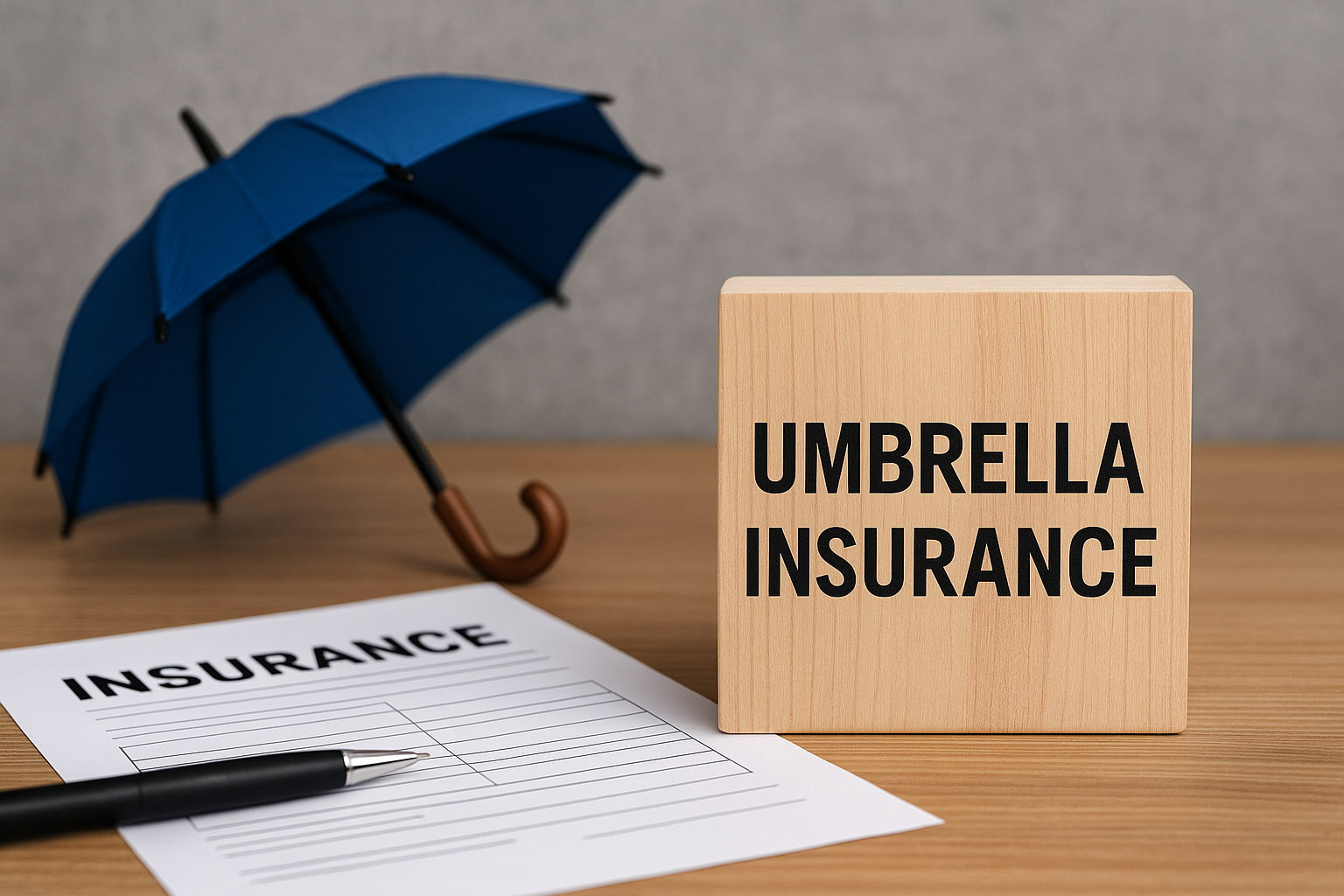Understanding Umbrella Insurance
Definition and Purpose
Umbrella insurance is a secondary liability insurance policy. It offers coverage beyond your homeowners, auto, or renters insurance. It acts as a safety net when your primary insurance runs out.
How It Works with Existing Policies
Umbrella insurance kicks in after your base policy limits are exhausted. For example, if you’re sued for $1 million after a car accident but your auto insurance only covers $300,000, umbrella insurance would cover the remaining $700,000—up to your policy limit.
Key Features of Umbrella Insurance Policies
High Liability Limits
Most umbrella policies start at $1 million in coverage. You can increase coverage up to $5 million or more, depending on your needs.
Coverage Beyond Standard Insurance
It often covers situations that standard policies exclude. This includes libel, slander, and false arrest claims.
What Does Umbrella Insurance Cover?
Personal Liability
Covers injuries or property damage you’re responsible for. This can happen at home or elsewhere.
Legal Defense Costs
Pays for legal fees, court costs, and settlements. This is even if you’re not found legally liable.
Worldwide Coverage
Unlike many base policies, umbrella insurance covers incidents occurring anywhere in the world.
What Umbrella Insurance Does Not Cover
Exclusions and Limitations
Personal injuries to you or household members
Damage to your own property
Intentional criminal acts
Common Misunderstandings
Umbrella insurance is not a catch-all policy. It’s designed for liability claims, not general damages.
Who Should Consider Umbrella Insurance?
Homeowners and Renters
Anyone with significant assets or properties should consider extra protection.
Business Owners and Landlords
Higher risk of liability through property rentals or business operations makes umbrella insurance essential.
High-Net-Worth Individuals
Those with sizable savings, investments, or public profiles are prime targets for lawsuits.
Cost of Umbrella Insurance
Average Premiums
Umbrella insurance is surprisingly affordable. Premiums range from $150 to $400 annually for $1 million in coverage.
Factors Affecting Cost
Number of properties owned
Number of vehicles and drivers insured
Personal risk factors (e.g., owning a pool, trampoline, etc.)
How Much Umbrella Insurance Do You Need?
Evaluating Your Risk Profile
Consider your total net worth, risks, and lifestyle. The more exposed you are, the higher the coverage you’ll need.
Recommended Coverage Amounts
A good rule of thumb: cover your net worth plus future income.
How to Buy Umbrella Insurance
Through Existing Insurers
Most providers need you to have home and auto insurance with them before they offer umbrella policies.
Comparing Providers & Policies
Look at quotes, policy limits, and exclusions from different insurers to find the best fit.
Pros and Cons of Umbrella Insurance
Benefits of Extra Protection
It’s affordable for the coverage you get.
It protects against big liability claims.
It covers legal costs and worldwide incidents.
Potential Drawbacks
It requires a minimum of underlying coverage.
It doesn’t cover personal injuries or damages to your own property.
Real-Life Scenarios Where Umbrella Insurance Helps
Car accident lawsuits exceeding auto policy limits
Injuries on your property leading to lawsuits
Defamation lawsuits from online posts
Myths and Misconceptions About Umbrella Insurance
“It’s Only for the Wealthy”
This is not true. Anyone with assets to protect, like a home or retirement savings, should consider umbrella insurance.
“Standard Insurance is Enough”
With rising medical costs and legal settlements, standard policy limits may not be enough in a serious claim.
Legal and Financial Importance of Umbrella Insurance
Asset Protection
It ensures your home, savings, and future earnings aren’t lost in a lawsuit.
Peace of Mind
Knowing you’re protected from huge financial losses brings a lot of peace of mind.
Comparing Umbrella Insurance with Excess Liability Insurance
Key Differences
Excess Liability increases existing policy limits.
Umbrella Insurance adds broader coverage for more risks.
Which One Do You Need?
Umbrella insurance is generally more complete, making it a better choice for wide liability protection.
How Umbrella Insurance Complements Other Policies
Umbrella insurance extends the protection of auto, homeowners, and renters insurance, covering gaps and providing higher limits.
Frequently Asked Questions (FAQs)
1. Is umbrella insurance worth the cost?
Yes, for a relatively low premium, you get a lot of extra liability coverage.
2. Can renters buy umbrella insurance?
Absolutely, renters can purchase umbrella insurance to protect against liability claims.
3. Does umbrella insurance cover legal fees?
Yes, it covers legal defense costs for covered liability claims.
4. How do I know if I need umbrella insurance?
Evaluate your assets, possible liabilities, and overall risk exposure.
5. What is the minimum coverage required before getting umbrella insurance?
Typically, insurers require minimum limits on auto and homeowners policies.
6. Is umbrella insurance the same as personal liability insurance?
No, umbrella insurance offers broader protection and higher limits than standard personal liability coverage.
Final Thoughts: Should You Get Umbrella Insurance?
If you have assets to protect and want peace of mind, umbrella insurance is a smart and affordable choice. It’s a key tool in protecting your financial future from unexpected liabilities.














